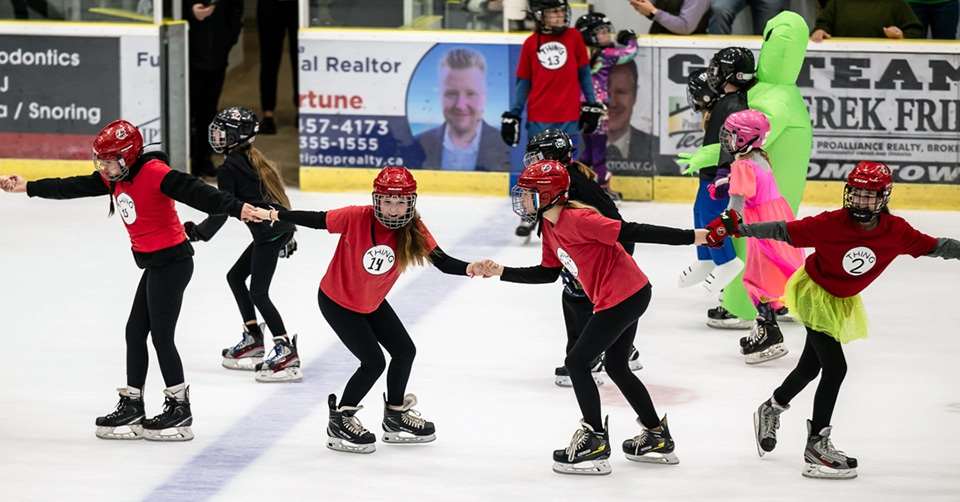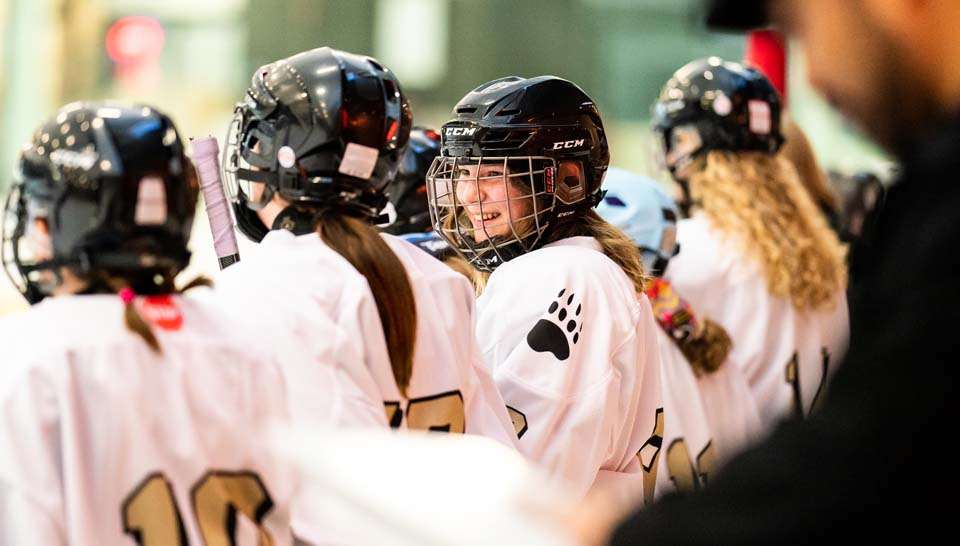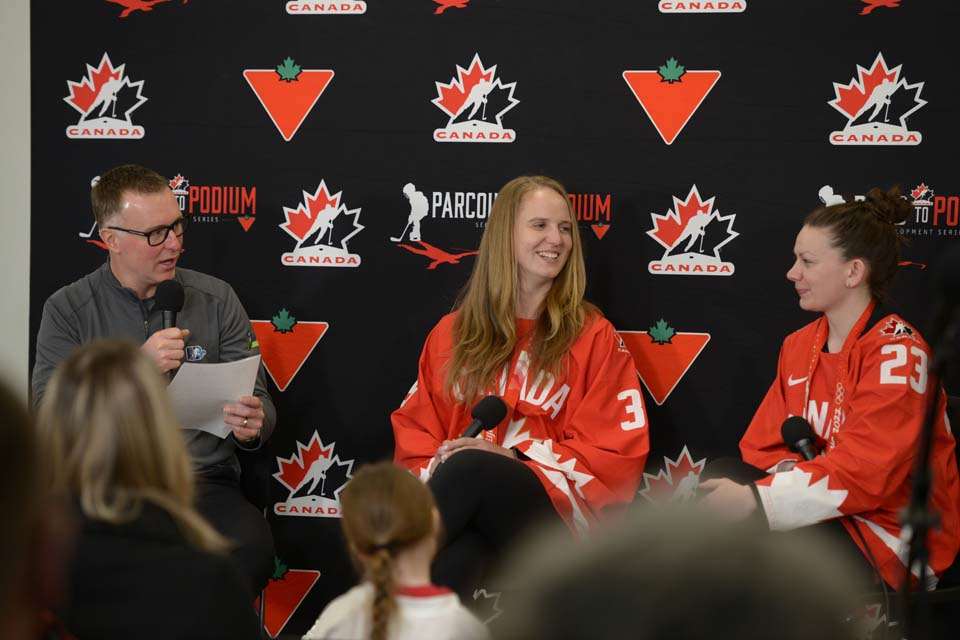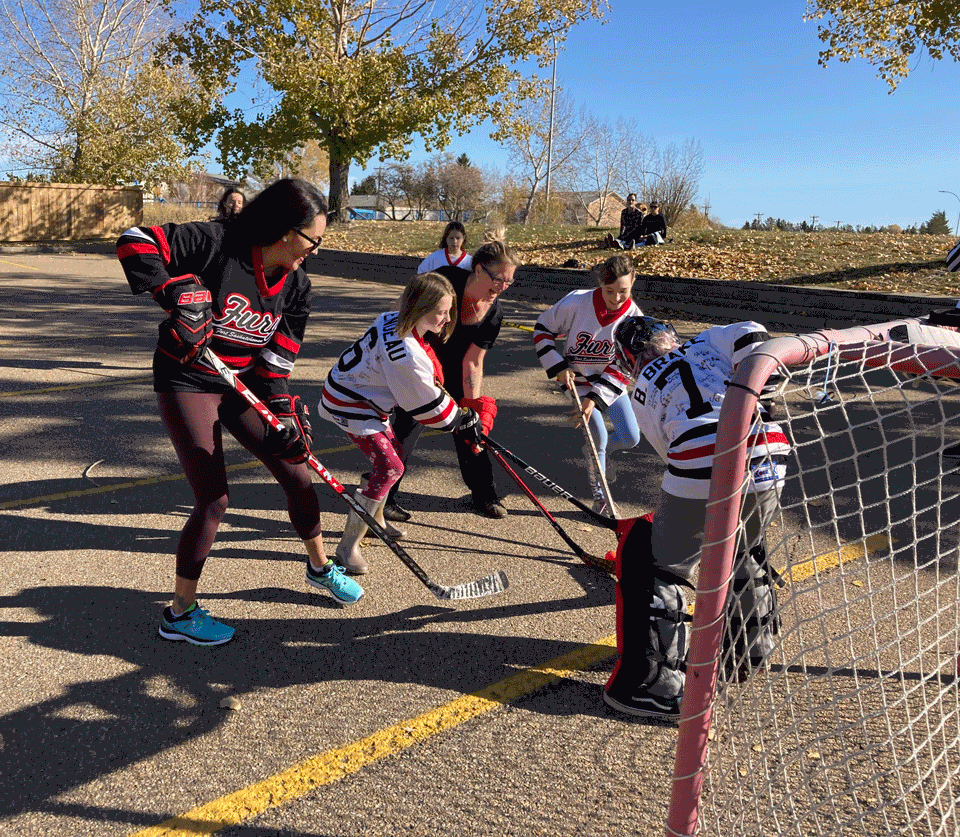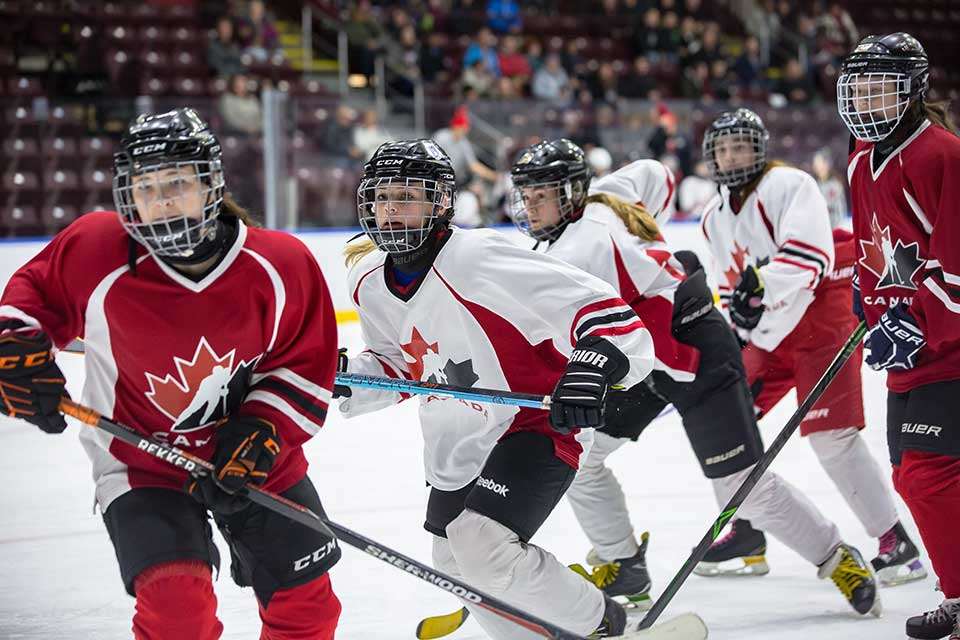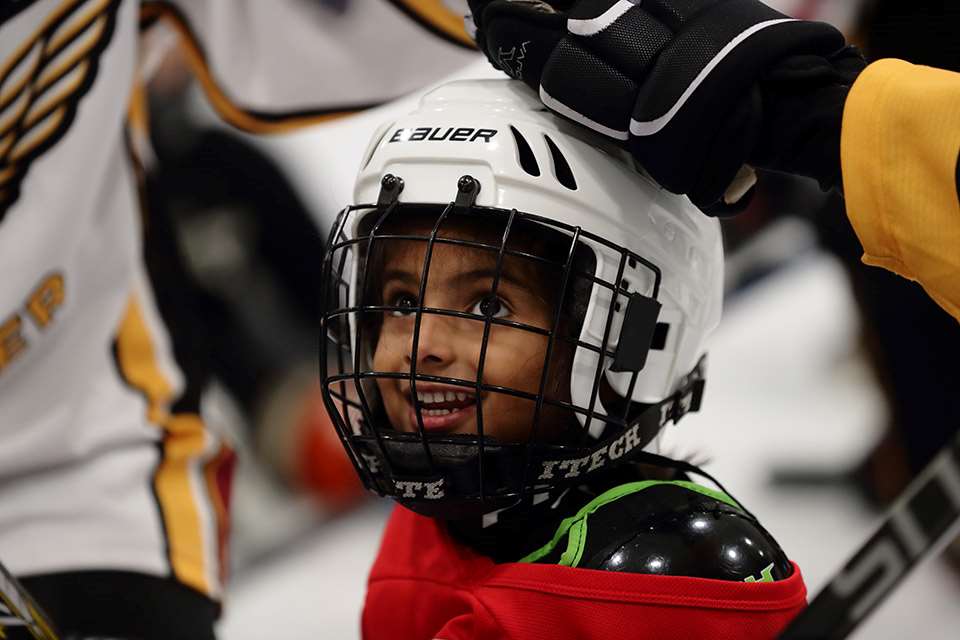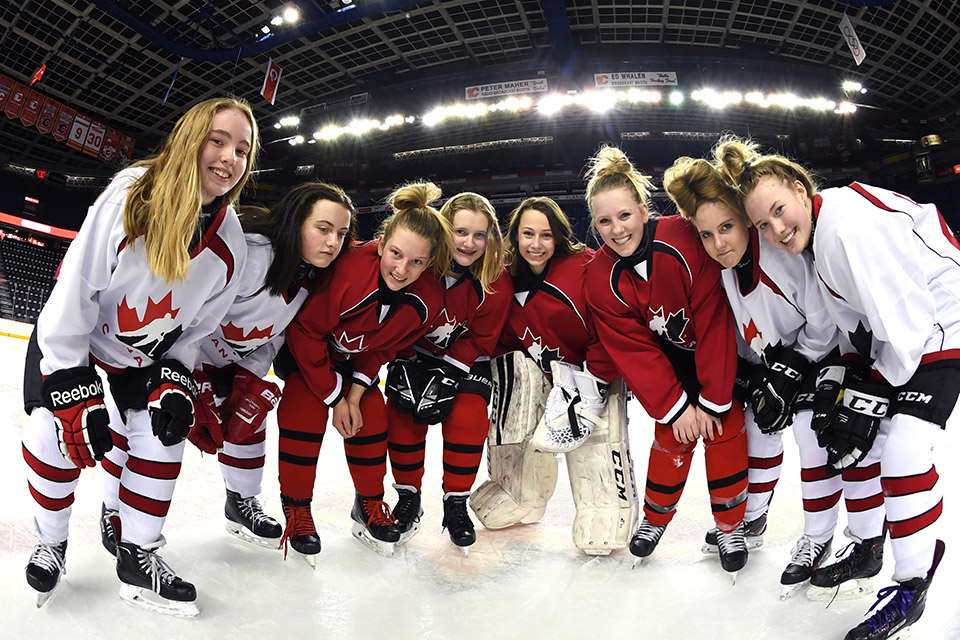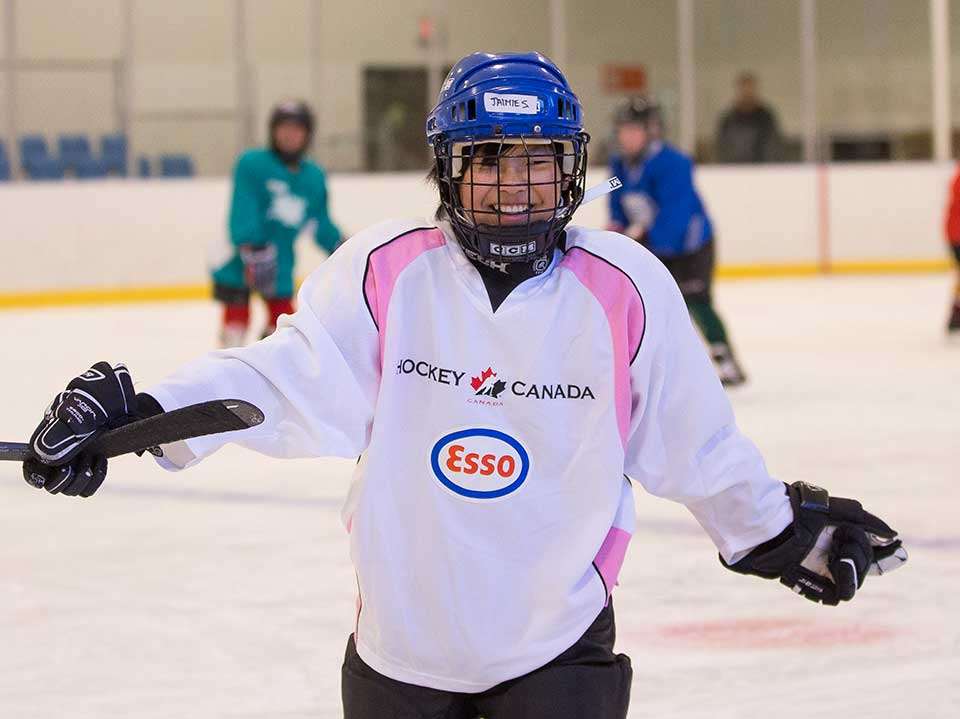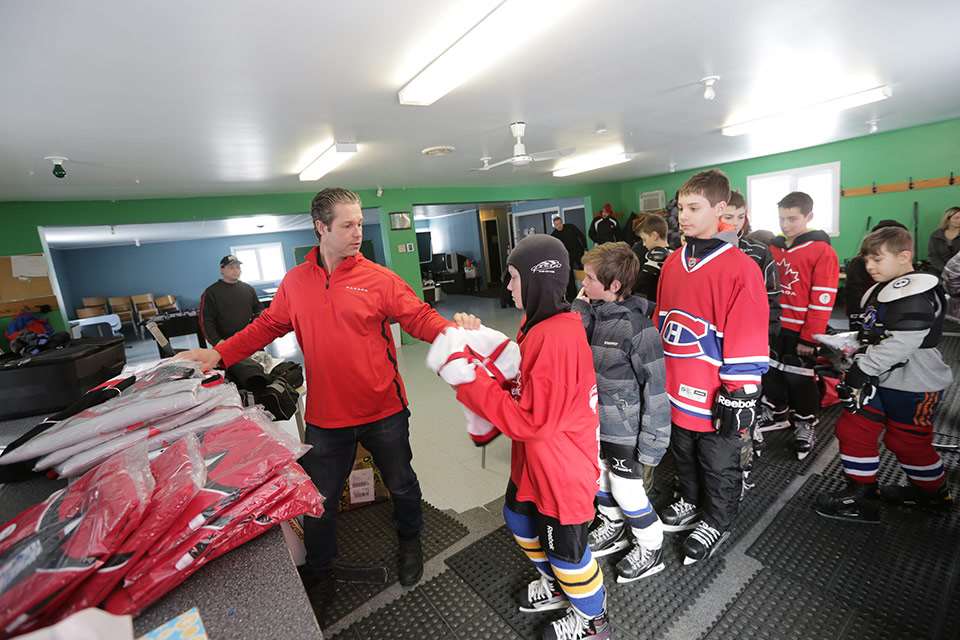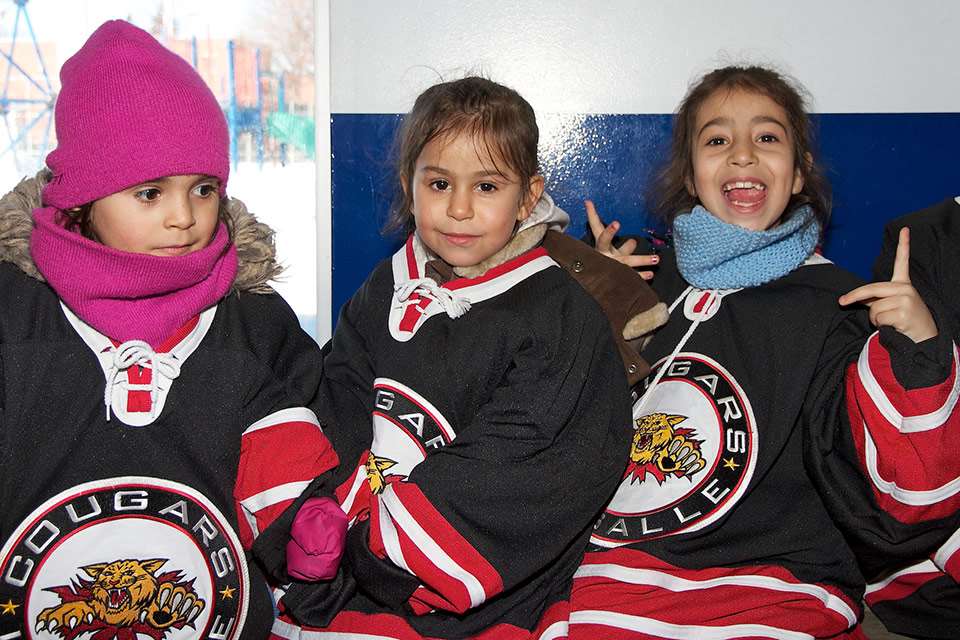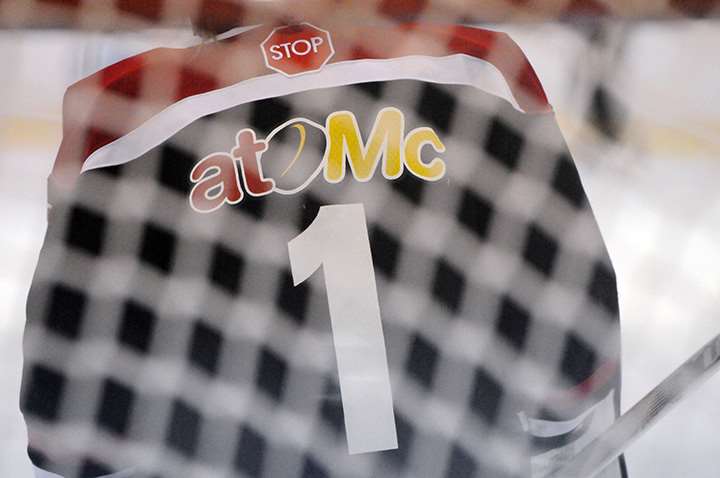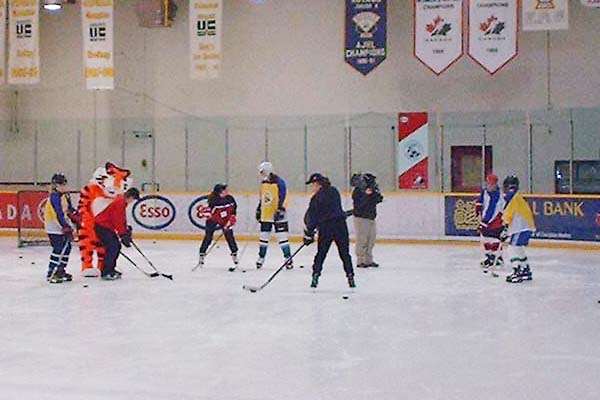Frequently Asked Questions for Women's and Girl's Hockey
- My Daughter is Interested in Trying Female Hockey, are there any Programs Available for Her to Learn the Basics?
Answered by Manager, Female Hockey Development, Hockey Canada
Your first step to introducing your daughter to female hockey would be to attend an ESSO Fun Day or “Learn to Play” Hockey Program in your community. Branches have introductory programs in place to make sure that participant’s first experience in hockey is a fun and positive experience. For more information on these programs contact your Provincial Branch or your Female Branch representative.
» more
- As an Adult I Never had the Chance to Play Hockey, what Opportunities are Available for Me to Learn to Play or Start Playing in a League?
Answered by, Manager, Female Hockey Development, Hockey Canada
Your first steps as a new participant would be to attend an ESSO Fun Day or “Learn to Play” Hockey Program in your community. If these are not available and you would like to learn the basic skills before joining a team, contact your Local Minor/Female Hockey Association to gather information on any power skating or skill development programs they may be running or coaches that may be willing to offer individual instruction.
There are Adult Recreational and Senior Recreational/Competitive Divisions in most Branches across Canada. (These leagues and programs may be Co-Ed or Female Only)
» more
- Should my Daughter Play Co-Ed Hockey or Girls Hockey?
Answered by Melody Davidson, Hockey Canada
This really depends on what is best for each individual athlete and the opportunities that are available within your community and association. Organizations need to step up and create female teams at the Atom and PeeWee levels so the girls have the option of playing female hockey at all levels. It is important to remember that at some point the athlete will have to join the women’s game if they wish to continue to play at a high performance (provincial or national) and/or a post – secondary level. Be careful not to burn your bridges!
If you are in a community that does not have female hockey and you are playing on a co-ed team it is important to stay in contact with your provincial branch and make sure you have the opportunity to get involved with the Branch POE (Program of Excellence). It is important for players (and parents) to remember that if you want to advance in hockey eventually you have to play female hockey.
Answered by, Manager Female Hockey Development, Hockey Canada
The benefits of females playing female hockey are reflected on both the skill development and the social aspect of the game. It is important for girls to have the opportunity to interact with teammates and be leaders on their teams. The skill level of female hockey has increased dramatically and girls today have the opportunity to compete at a high level and still benefit from the social and leadership side of the game as well.
-
What Skills Should Young Players be Focused on and what Additional Support is Available to Improve an Athlete’s on and Off-Ice Performance?
Answered by Corey McNabb, Sr. Manager, Player Development, Hockey Canada
The most important skills to be working on are the technical skills of skating, puck control, passing and receiving and then shooting. From there it is working on the ability to put those skills together in combination to work on the individual tactics. Such as, how to skate and handle the puck so that a player can use those skills to beat a defenseman 1 on 1 or for a defenseman to take the puck away from a forward and go on offense.
There are many additional support programs that parents can provide if additional development opportunities are not provided through the local minor/female hockey association. Typical programs are power skating, puck handling clinics, shooting clinics, defencemen specific clinics, goaltending clinics etc... Many of these clinics are focused on a specialty skill or position, so athletes will typically greater improvement faster than with traditional hockey schools since they are stream lined towards specific skills.
Off-ice training such as strength and conditioning or nutrition are also important to developing young athletes. However, the steps taken in this area should follow the long term player development guidelines so the athletes are doing the proper things at the proper stages of their development.
» more
-
Should I Move my Daughter Away from Home for an Opportunity to Play at a Prep School or Higher Calibre Team than she can Play at Home?
Answered by Melody Davidson, Hockey Canada
This really is a personal choice and is different for each individual athlete. I always prefer to see young players remain in their family home until they have to leave for University. If considering moving your daughter out of Province or out of Country be sure to ask a few very important questions.
a) Hockey (on-ice training) Will she get more ice/practice time or can you access just as much where you live? Depending on where you are looking many schools will focus on the number of games and tournaments that they play in rather than the practice time and focusing on developing skill in young players. Be sure to utilize the resources around you!
b) Hockey (off-ice training) What do you currently have access to where you live and are you utilizing them to the fullest? (Local gyms, trainers, coaches, specialty skill coaches)
c) Hockey (Competition) Is it really better competition or is it the perception and prestige?
d) Nutrition – who is supporting your daughter in this area and ensuring that she is taking care of herself?
e) Academics – will she lose courses or have to upgrade her education when she is finished her schooling? What is the support system academically – who will ensure that marks stay where they need to be in order to graduate and in order to get accepted into post secondary schools.
f) Financial – your daughter still has university to attend – how much financial burden will it be to leave home early? Will she still be eligible for provincial grants/scholarships if she leaves to attend school elsewhere?
g) Family (Your support) How often will you get to see her, spend time with her? Who will “raise” her and be responsible for her while she is away? Can you afford to travel to watch her play? Is it important to her and your family that you are there?
h) The Next Level (Branch/Hockey Canada)To stay eligible for HC programs your daughter must stay involved with the provincial branch – will they still accept her to try out – especially if she leaves the province/country to play elsewhere?
-
What is the Best Way for a Young Female Hockey Player to get Scouted?
Answered by Melody Davidson, Hockey Canada
We heavily rely on Branches to identify their players. With the U18 program we focus on Grade 11 and Grade 12 athletes and scout at Provincial POE camps, U18 Nationals, ESSO Cup, the top Midget leagues in your province and Intermediate league play plus other major female tournaments across Canada.
At the U22 level players are scouted through the CIS (Canadian Post-Secondary Schooling) and the NCAA (American Post Secondary) These players then come together for an evaluation camp and play in the MLP Cup in Europe each year.
It is important to contact your Provincial Branch if you are not currently part of their POE program and are looking to be scouted for National Team Programs.
-
What is the Best way for a Young Female Hockey Player to get Scouted?
Answered by Melody Davidson, Hockey Canada
Definitely the best way for scouts (University and National Program) to see you is to play in the female system and with your Provincial POE (Program of Excellence). If you are playing in a top division of female hockey in your province and/or invited to participate in the Provincial POE, scouts will see you play.
Hockey Canada does not have the infrastructure or staffing to scout girls playing boys hockey. For this reason it is very important for the athlete to be involved with the provincial (branch) program as this may be the only way we would see them play until they make the move to full time female hockey.
-
What are the Benefits of Going to School and Playing Hockey in the CIS?
Answered by Dan Church, Head Coach York University Women’s Hockey Team, Asst Coach Team Canada
There are many benefits of staying in Canada for Education and Hockey. Some of these include:
- 5 years of playing eligibility
- Quality of the leagues - there are 30 schools competing in the CIS for a National Championship
- Top coaches - almost half of the head coaches in the CIS have had experience coaching or playing in Canada's program of excellence with the national team or provincial team programs. Canada has the top coach education program in the world
- Quality of education - Canada is recognized as a global leader in education. Our post-secondary programs are top ranked because of their quality and consistency across the country. Student-athletes who are interested in working in Canada after graduation must really consider the quality of their degree and the social connections that become business connections after graduation from university
- Value of education - Canadian universities are globally recognized for their value. The cost is low but the quality of education is extremely high. Provincial governments subsidize the cost of education which is why tuition costs are reasonable
- Athletic scholarship - Athletic Financial Awards are available for top athletes but are tied to academic performance
- FISU World University Games - CIS athletes have the opportunity to represent Canada internationally at the second largest multi-sport competition in the world next to the Olympic Games
- Positive relationship and strong linkages to Hockey Canada
-
» more
-
What Opportunities are there to Play Female Hockey in Europe?
Answered by Tanya Foley, IIHF, Women’s Program Manager
There are more opportunities every year as more support is added into women’s programs around the world. Most European countries now have a women’s league operating with teams usually basing in the nation’s major centres and travelling to play each other. The IIHF has operated the European Women’s Champions Cup for the past seven seasons which is a three round tournament structure involving sixteen (16) club teams from around Europe. There is also an Elite Women’s Hockey League that in the 2010-11 season was comprised of eight teams from Austria (3), Germany (1), The Netherlands (1), Slovakia (2) and Slovenia (1) to allow for extra competition.
-
What Opportunities are there for Women to Stay Involved in the Game Once they are Finished Playing?
Answered by Tanya Foley, IIHF, Women’s Program Manager
The future of the game is dependent upon providing opportunities for the bright stars of tomorrow. A Five or ten year old girl can’t book ice time, run a Girls’ Hockey Day, or even officiate in a game, but we are seeing more and more coaches, referees, team managers and tournament organizers being people who were players themselves. If someone has a passion for the game, there are countless ways for them to share it with others! They just need to make a phone call to their local hockey association to see what is needed in their community, and with some time and commitment, doors may open to regional, national and possibly even international opportunities.
Answered by, Female Hockey Development, Hockey Canada
Many people don’t realize their true passion for the game until their playing careers are over and have the opportunity to be involved as a coach, official, trainer, administrator and numerous other roles. Who better to educate young players and officiate female hockey than females who already have the knowledge and skills to perform these tasks? There are countless opportunities to give back to sport and continue to be a role model and mentor to women and girls at all levels of the game. For more information on how to get involved in your community contact your Provincial Branch or simply contact your local minor/female hockey association in your community!
» more
-
I’ve Always Wanted to get Involved in Coaching Hockey, what Courses do I have to take to Become a Coach?
Answered by Mike Bara, Coordinator, Development, Hockey Canada
Coaches can enter into a ‘stream’ of coaching by taking part in clinics that are relative to the athletes that they are working with. The Coach Stream, Development Stream and High Performance 1 Certifications are delivered by our Provincial Branches..
Coach Stream (Coach Level Certification)
• Working with community and recreational teams, i.e. Initiation, Novice, Atom, House League levels
Developmental Stream (Development 1 and 2 Certification)
• Working with provincial and regional teams, i.e. Peewee Rep, Bantam, Midget, Junior, Intermediate
High Performance Stream (High Performance 1 and 2 Certification)
• Working with national and international teams, i.e. Midget AAA, College, University
» more
-
I am Currently Playing hockey but want to get Involved as an Official where do I Find out Information on Clinics?
Answered by Todd Anderson, Manager, Officiating, Hockey Canada
Hockey Canada Certification clinics are conducted by our Branches and often your Local Minor Hockey Association would be your best source of local officiating contacts that can put you in touch with the appropriate person. Clinics generally run from August through November each year and officials must re-certify each season.
To find your Branch website check out www.hockeycanada.ca or CLICK HERE for more information on ‘getting started in officiating’
-
If Team Canada Plays Against Male Teams to Prepare Themselves for International Competition
should my Minor Female Team play against Boys Teams to Prepare for our Season, Tournaments or Provincial Competitions?
Answered by Melody Davidson, Hockey Canada
The National Women’s Team is an extraordinary circumstance, when we bring our best players together there is no female competition in Canada that we can compete against that will challenge us. The exception is if we have enough players in camp to make two teams but when we do not, we go to the next best which at this time is in the male program. If we had female opponents at a level that would challenge us and prepare us for International events we would be playing those teams instead of male teams.
Playing at the Minor/Female Hockey Level I wouldn’t discourage teams to prepare by playing a team of a higher calibre for a challenge but in the majority of circumstances you can find a female team that challenges your ability rather than a male team. Again the two games (male-female) are very different and the benefit of playing other female teams will have a larger impact for your team.

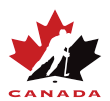
 HOCKEY CANADA
HOCKEY CANADA

